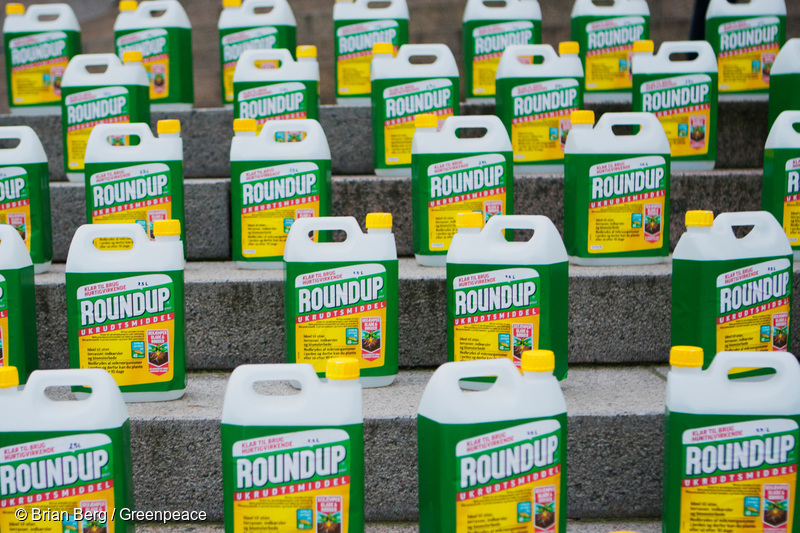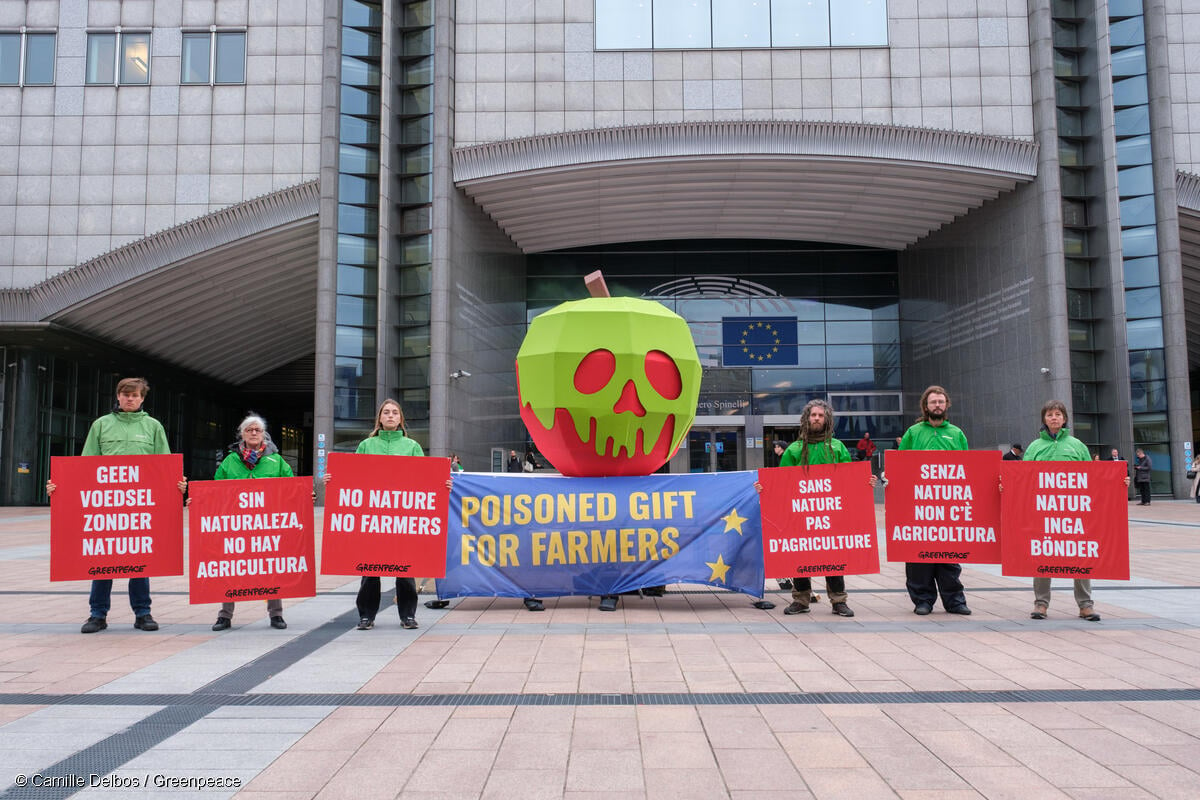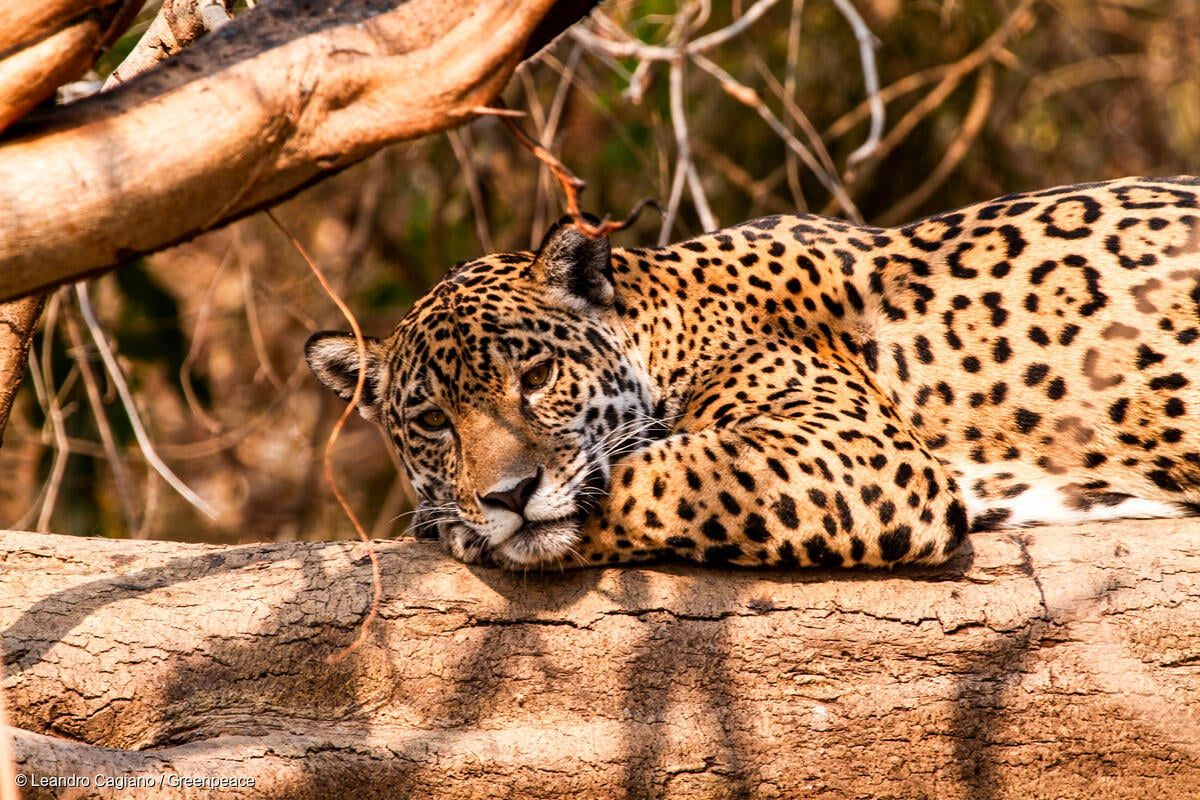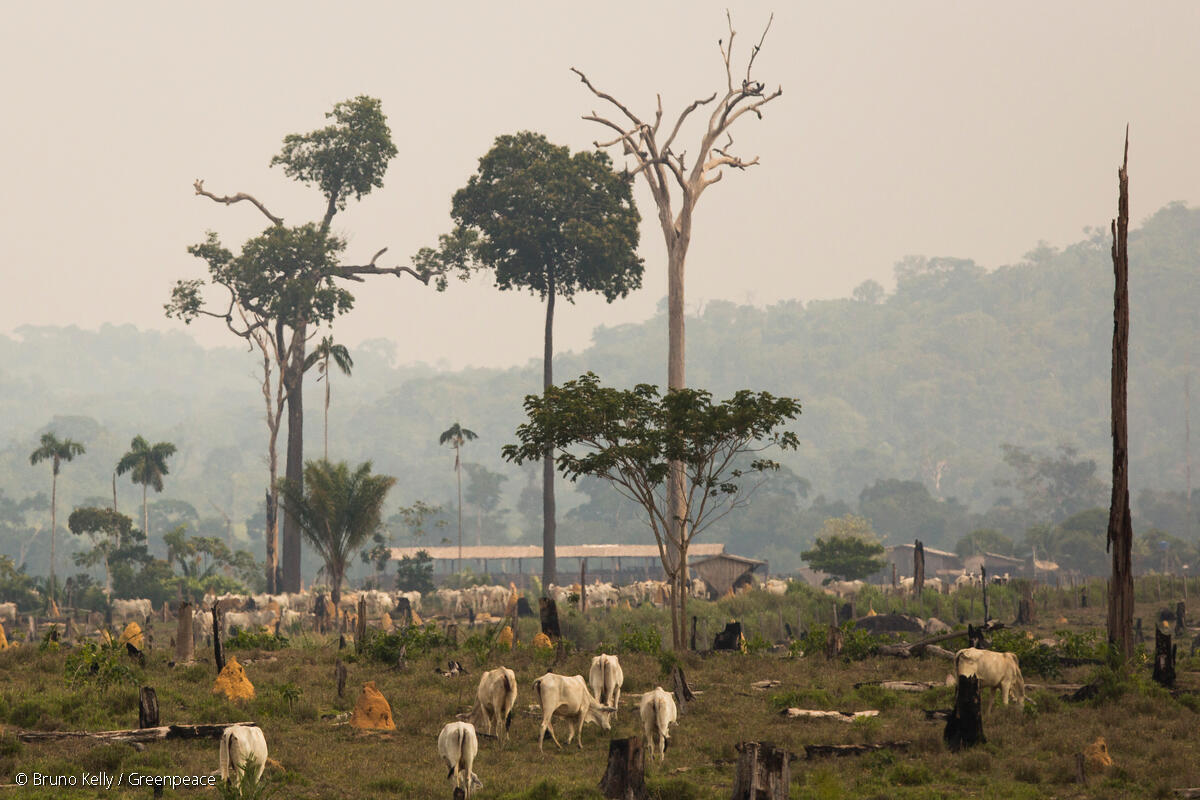
Brussels, 6 July 2023 – The European Food Safety Authority (EFSA) has opened the door to a renewed market authorisation for the controversial herbicide ingredient glyphosate, a move that puts people’s health at risk, warned Greenpeace. Despite growing scientific evidence that glyphosate may cause cancer and other health problems and could also be poisonous to bees, this is the second time that EFSA has given it the green light, after paving the way for market re-approval already in 2015.
Greenpeace is calling on the European Commission and national governments to reject glyphosate market re-approval.
Greenpeace EU pesticides campaigner Eva Corral said: “For years the evidence of glyphosate’s toxicity for people and the environment has been stacking up, but the European food safety authority has once again decided to sweep it under the carpet. The Commission and EU governments have a duty to protect people and nature: they must reject its re-approval and put European farming on a sustainable course.”
In 2017, over a million people called on the European Commission to ban glyphosate, and the European Parliament called for it to be phased out by the end of 2022. Though glyphosate’s market approval expired in December 2022, the European Commission extended this deadline to give EFSA time to complete its assessment.
Human health and nature
In 2015, the World Health Organization’s International Agency for Research on Cancer (IARC) classified glyphosate as probably carcinogenic to humans. Since then, more independent research has shed more light to glyphosate’s negative health effects for people.
Recent research has also shown that glyphosate can be considered toxic to bees.
Research scandals
Between 2012 and 2015, public authorities plagiarised assessments by glyphosate producer Monsanto (now Bayer) of the independent scientific literature on glyphosate’s health impacts, presenting them as their own conclusions.
In 2017, investigative reporters revealed that Monsanto ghost wrote research to promote glyphosate as safe, and to attack UN cancer agency IARC for classifying it as probably carcinogenic to humans.
In 2020, two researchers from the Institute of Cancer Research at the Medical University of Vienna evaluated the industry studies on glyphosate genotoxicity submitted to EU authorities for the current renewal process, concluding that the vast majority were “not reliable” or only “partially reliable”.
Next steps
Based on EFSA’s risk assessment, the European Commission will make a proposal, which should then be discussed and voted on by national government representatives in the EU Committee on Plants, Animals, Food and Feed (SCoPAFF).
Contacts:
Eva Corral, Greenpeace EU GMO campaigner: +32 479 60 12 89, [email protected]
Greenpeace EU press desk: +32 (0)2 274 1911, [email protected]
For breaking news and comment on EU affairs: www.twitter.com/GreenpeaceEU
Greenpeace is an independent global campaigning network that acts to change attitudes and behaviour, to protect and conserve the environment and to promote peace. We do not accept donations from governments, the EU, businesses or political parties. Greenpeace has over three million supporters, and 26 independent national and regional organisations with offices in more than 55 countries.
EU Transparency Register: 9832909575-41



